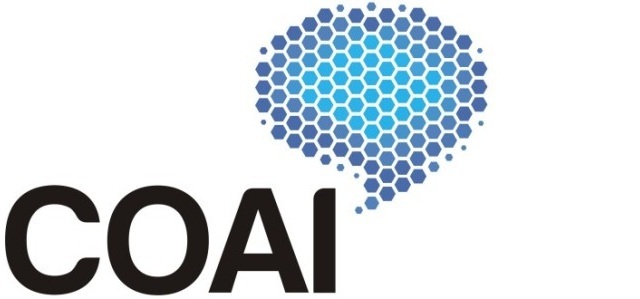COAI, an India telecom industry association for GSM mobile operators, has submitted its pre-budget recommendations to the finance ministry headed by Arun Jaitley.
Key submissions on Indirect Taxes
# Goods & Services Tax (GST)
The concern of the Indian telecom industry is that the increase in rate of tax from current 12 percent (service tax) to a higher rate under GST would increase the cost of telecom service, an essential service, for common man. A consultation process with trade and industry bodies should be initiated for GST, and a platform for such consultation should be formed.
The draft laws, rules and procedures should be circulated for comments and the final law should be made available at least 6-8 months before the date of implementation of GST. Since, place of supply rules for telecom services are distinct in almost all the overseas jurisdictions; India would also need distinct place of supply rules for telecom services under the GST regime. The compliance requirements under GST should be made uniform, user-friendly and simple for businesses and other stakeholders.
# Payment of customs duty for telecom products
In last year’s budget, exemption from payment of customs duty was withdrawn on import of specified telecom products without mentioning the specific name / description of the products. COAI has requested that the specific names of these items / products should be stated, without which classification of goods have become ambiguous.
COAI has suggested that the telecom goods manufactured in India in Special Economic Zones should be exempted from basic customs duty. These manufacturers, including foreign companies, meet the objective of Make in India and are promoting domestic manufacturing. Such exemption would lower the cost of telecom network while at the same time, supporting the Digital India project of the Prime Minister.
# Rate of interest
In last budget, the rate of interest on delayed payment of service tax was increased to 30 percent. This rate of interest is not compensatory but penal in nature and the same should be reduced to a more reasonable rate.
# Cenvat Credit
In last budget, the time limit for claiming Cenvat credit was stipulated as six months from the date of issue of invoice. COAI has suggested that the stipulation be changed to six months from the date of issue of invoice or six months from the date of payment of invoice, whichever is later.
Key submissions on Direct Taxes
# Taxability of Interconnect Usage Charges
Telecom companies regularly make payments to other providers towards various standardized telecommunications services (such as interconnect usage charges and roaming) and there has been extensive litigation in India on taxability of such payments made to non-resident operators.
Currently, the issue of taxability of interconnect usage charges is sub-judice whereas for International Private Leased Circuit and satellite services, the judiciary in India has unequivocally held that these are standard services and hence fee for same cannot be taxed as royalty under Indian tax laws.
However, Finance Act, 2012, retrospectively amended the definition of ‘royalty’ to include transmission by satellite, cable, optic fibre, or similar technology. By virtue of this amendment, payments made by telecom companies, even for standard telecom services could be considered as royalty by tax authorities, resulting in protracted litigation and would put Indian operators under an obligation to withhold taxes on such payments.
Hence, it imposes an obligation to withhold tax from payments which have already been made in past and cannot be recovered. It would result in an increase in the cost for end consumers in India since such payments are generally made on net of tax basis, i.e., tax cost in India cannot be passed on to the international operator.
This amendment is contrary to the provisions contained in the Double Taxation Avoidance Agreements signed by India with other countries and internationally recognized meaning of ‘royalty’, which ordinarily includes payment for use of industrial, scientific or commercial equipment or payment for use of a secret process, formula, etc.
Most developed countries like US, UK and Canada define the term royalty to include payment for a process, formula or a technique but not for standard services like telecom services. Accordingly, to protect the interests of Indian telecom industry and avoid increase in the cost of telecom services for Indian consumers, definition of the term ‘royalty’ should be reinstated with retrospective effect, as it was before the amendment in 2012, which is also aligned with international practice.
# Tax Withholding on Discount Offered to Distributors
Telecom companies sell SIM cards and prepaid vouchers to independent distributors at a discount, who further sell to Retailers and/ or subscribers. Telecom companies do not withhold tax on discount offered to distributors, basis an argument that discount is not in the nature of commission as distributors are not agents of telecom companies. However, revenue authorities have adopted a contrary position that tax withholding is required on margins earned by Distributors. This matter is presently pending before the Supreme Court of India, resulting in severe litigation costs for the industry.
It is suggested that the Government introduces new provisions or amends the existing provisions of the Act, thereby clarifying the methodology to be adopted for withholding taxes on discount offered to distributors by telecom companies. Considering the low margins earned by distributors in telecom industry, a lower withholding tax rate may be prescribed for distributor margins.
Also, since discount offered to distributors is shared with retailers appointed by them, distributors should be exempted from withholding taxes on Retailer margins to avoid duplicity of withholding tax incidence in the supply chain of pre-paid telecom products.






